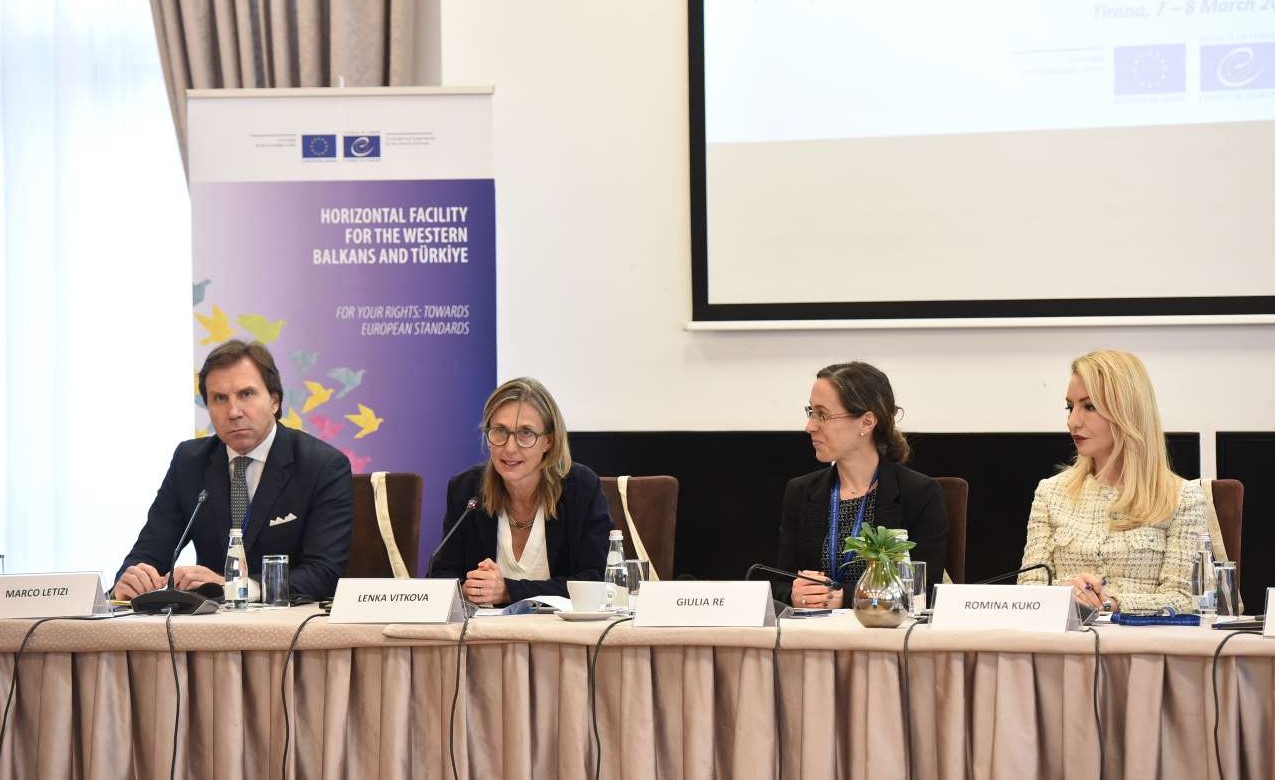A regional conference focusing on the intricate relationship between money laundering, corruption and environmental crimes in the Western Balkans took place in Tirana, Albania. Organised with the support of the European Union and the Council of Europe, the two-day event brought together key stakeholders from law enforcement, environmental and financial intelligence agencies, as well as civil society representatives and experts in the field, to tackle the interconnected challenges of environmental crime, corruption, and other financial crimes, that pose significant threats to the environment and socio-economic stability in the Western Balkans.
The Head of the Council of Europe Office in Tirana - Giulia RE welcomed the practitioners, experts and civil society representatives from the Western Balkans and European Union member states, stressing the shared responsibility for a more effective fight against environmental crimes. “The process we are initiating today follows upon the intensified efforts of the Council of Europe and its members in addressing the damaging effects of illegal activities on the environment and enjoyment of human rights.”, underlined Re.
Deputy Minister of Interior of Albania - Romina KUKO, in her address noted that in a time when environmental challenges are becoming increasingly complex, the Albanian Government has taken a number of concrete measures that serve as the basis for effective efforts to prevent, detect, and punish destructive activities towards the environment. ‘Driven by the common vision for a clean and sustainable environment, I would like to emphasise that these efforts are not just government initiative, but a collective call to change the paradigm and create an environmentally conscious and responsible society’, said Kuko.
The Head of Section for Rule of Law and Good Governance, Delegation of the European Union to Albania - Lenka VITKOVA stated: “The EU response to environmental crimes involves a multifaceted approach that combines legislative measures, law enforcement co-operation, capacity building initiatives, international partnerships and public engagement. Environmental crime can be as profitable as illegal drug trafficking, but the sanctions are much lower, and it is harder to detect. These factors make environmental crime highly attractive for organised crime groups.”
During the conference, participants delved into case studies to examine the primary money laundering risks and corruption factors linked to environmental crime, including regional patterns of illicit financial flows. These discussions also provided an opportunity to identify shared challenges and innovative strategies, extending beyond the region, while fostering synergies with the EU’s environmental protection policy priorities.
The conference is part of the broader framework of the Action against Economic Crime in the Western Balkans aimed at supporting the public authorities in the region in improving their anti-corruption and anti-money laundering policy and operational responses regarding environmental crimes, at the domestic and regional levels. In this context, it is a precursor to a thematic regional review which aims to enhance understanding on financial aspects of environmental crime.
This activity is organised in the framework of the European Union and Council of Europe joint programme "Horizontal Facility for the Western Balkans and Türkiye" .

